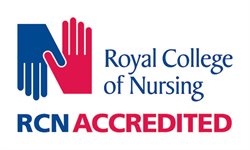Professional Midwifery Advocate
This module prepares midwives to undertake the Professional Midwifery Advocate (PMA) role. Content will focus on the development of PMA skills that aim to enhance the psychological support offered to NHS staff and improve the quality-of-care provision for families accessing services. The module will enable students to develop compassionate leadership skills in midwifery, enabling them to successfully undertake the role of a Professional Midwifery Advocate (PMA).
This PMA course is a specialised module, tailored for qualified midwives looking to enhance their skillset in compassionate leadership and the promotion of safe care provision in practice. The content of the module revolves around the crucial concept of psychological safety within the healthcare environment. It delves deep into all aspects of the NHS - A-EQUIP model, providing a comprehensive understanding of its components and applications.
Sessions will be delivered by a team of experienced professionals, combining expertise from both academic and practice backgrounds. This diverse wealth of knowledge ensures a well-rounded and holistic approach to learning, enriching participants with insights that bridge the gap between theory and real-world application. As midwives seek to expand their capabilities, this PMA module serves as a valuable resource, fostering a supportive and empowering learning environment for the cultivation of compassionate leadership in the field of midwifery.
Upon successful completion, midwives can practice as PMAs demonstrating leadership skills and providing specialist support to others. These skills are transferrable in many different roles and will look desirable from an employability perspective.
This programme has been accredited by the RCN Centre for Professional Accreditation until 2028. Accreditation applies only to the educational content of the programme and does not apply to any product.

Entry criteria
- Effective registration with a relevant professional body (i.e NMC, HCPC). (Essential)
- Currently be employed in practice and have the support of their manager in undertaking the module. (Essential)
- Ideally have undertaken successful level 5 or 6 academic study.
If you don't quite meet this entry requirement, you might still be eligible through Recognition of Prior Learning (RPL). Here's what to do in this instance:
- Contact us to discuss your qualifications and experience.
- Prove you've worked in your field with a UK professional body for at least a year.
- You might need to write a 1000-word essay to showcase your skills.
Want to discuss RPL so you can access the Professional Advocate Module? Contact: pna@dmu.ac.uk
Teaching and assessment
Synchronous and asynchronous learning is delivered by a variety of lecturers and supporting staff over 10 sessions. Qualified PMA’s available to learners that may require restorative support during some sessions.
Assessment – 2500 words in two reflective templates (within a portfolio of evidence), demonstrating achievement of the module learning outcomes. One will cover Restorative clinical supervision; one will cover quality improvement. Minimum threshold mark = 50%.
How to apply
Online application forms and guidance for application process
Key information
Module Category: PCPH
Module Code: 5057
Module Credits: 15
Module Level: 7
Semesters
We will be running the Professional Nurse Advocate for Nurses, Midwives and Allied Health care Professionals this year as follows:
January 2026 cohort:
This cohort is now full. Places are available on the September 2026 cohort.
- 20 January 2026
- 27 January 2026
- 3 February 2026
- 10 February 2026
- 17 February 2026
- 24 February 2026
- 3 March 2026
- 10 March 2026
- 17 March 2026
- 24 March 2026
September 2026 cohort:
- 23 September 2026
- 30 September 2026
- 7 October 2026
- 14 October 2026
- 21 October 2026
- 28 October 2026
- 4 November 2026
- 11 November 2026
- 18 November 2026
- 25 November 2026
Fees
£900 (from September 2026)